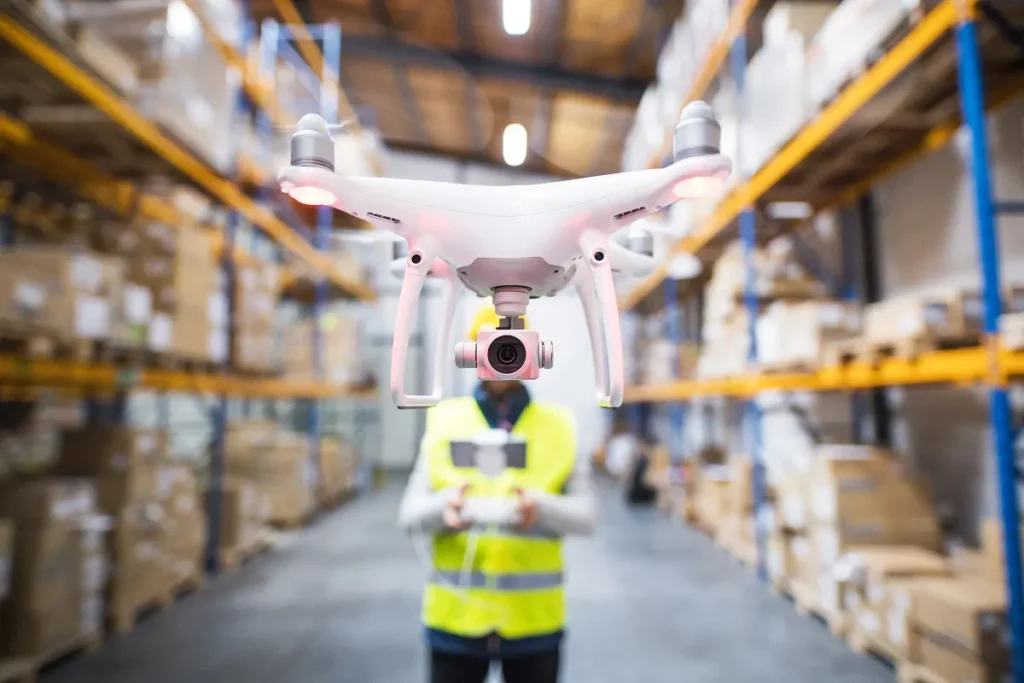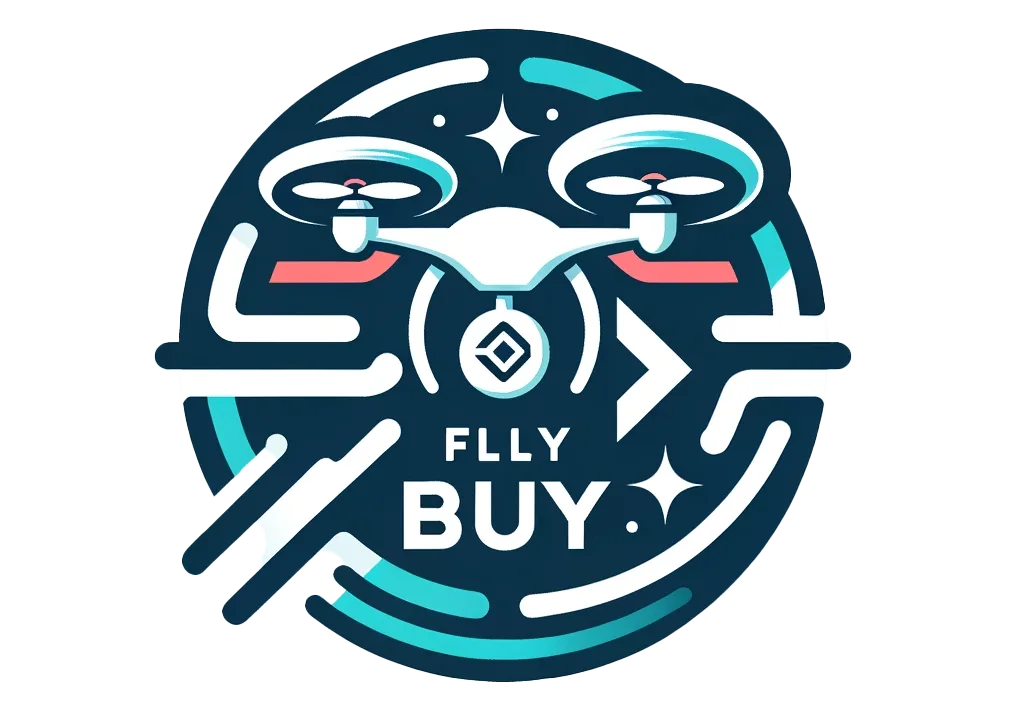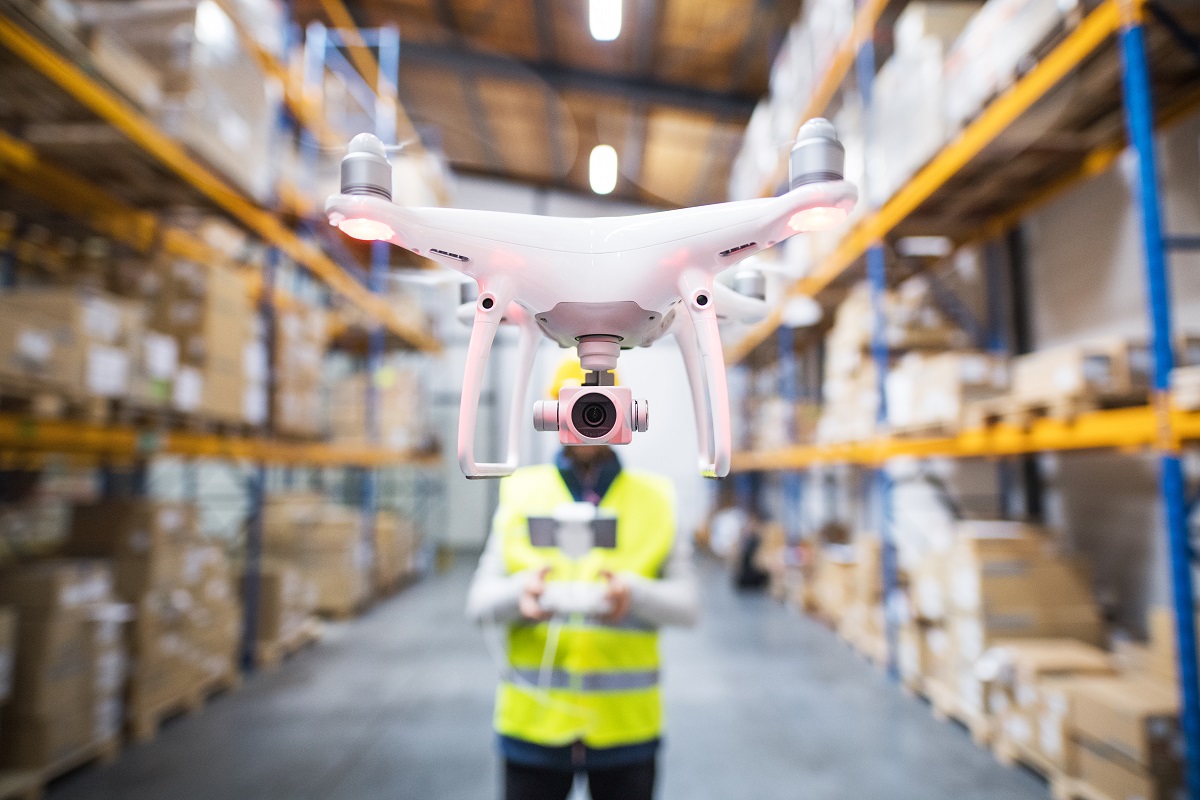
Introduction:
Drones, once a novelty in recreational use, have now evolved into indispensable tools revolutionizing the way businesses operate across various industries. With their ability to swiftly navigate through the skies and capture high-resolution imagery, drones have found applications in sectors such as agriculture, construction, logistics, retail, and more. This article explores the transformative potential of drones in the realm of business, highlighting their benefits, diverse use cases, and future prospects.
-
- Enhancing Efficiency and Productivity:
Drones have emerged as game-changers by streamlining business operations and boosting productivity in multiple ways: 🚀
a. Aerial Inspections: Traditional manual inspections of infrastructure, including buildings, power lines, and pipelines, are time-consuming and risky. Drones equipped with high-definition cameras and sensors can perform detailed inspections rapidly and safely, minimizing human intervention and reducing costs. 👁️🗨️
b. Mapping and Surveying: In industries like construction and urban planning, drones are used for aerial mapping and surveying, enabling faster data collection and precise measurements. This expedites project timelines, enhances accuracy, and facilitates better decision-making.
c. Inventory Management: In large wareho
uses and storage facilities, drones equipped with RFID technology can autonomously scan barcodes and track inventory. This automation significantly improves inventory accuracy, minimizes errors, and optimizes supply chain management. 📦

-
- Revolutionizing Logistics and Delivery:
a. Last-Mile Delivery: E-commerce giants and logistics companies are harnessing the potential of drones to revolutionize the last-mile delivery process. These unmanned aerial vehicles can efficiently transport small packages and medical supplies to remote or congested areas, reducing delivery times and costs. 📦🚚
b. Warehouse Automation: Drones can be utilized in warehouses for stocktaking, order picking, and item retrieval. With precise navigation capabilities and computer vision systems, they can locate items swiftly and accurately, enhancing warehouse efficiency.
-
- Precision Agriculture and Environmental Monitoring:
a. Crop Monitoring: In agriculture, drones equipped with specialized sensors and cameras enable farmers to monitor crop health, detect diseases, and assess water and fertilizer needs. This data-driven approach optimizes resource utilization, improves crop yield, and reduces environmental impact.
b. Environmental Conservation: Drones play a vital role in environmental monitoring, wildlife conservation, and disaster response. They can monitor forest fires, identify illegal activities, track endangered species, and assess the impact of climate change. These capabilities aid researchers and conservationists in making informed decisions to protect our planet. 🌳🚨
-
- Safety and Security:
a. Surveillance and Monitoring: Drones equipped with thermal imaging and surveillance cameras can enhance security measures by patrolling large areas, monitoring critical infrastructure, and detecting unauthorized activities. This real-time monitoring capability helps prevent accidents, respond to emergencies, and safeguard public and private spaces.
b. Emergency Response: During natural disasters or emergency situations, drones can provide valuable support to emergency response teams. They can assess damage, locate survivors, deliver medical supplies, and assist in search and rescue operations in hard-to-reach locations.
Conclusion:
Drones have emerged as a disruptive force across various industries, transforming traditional business

